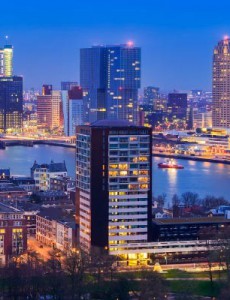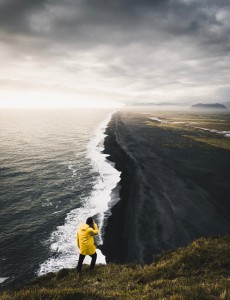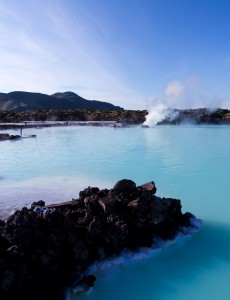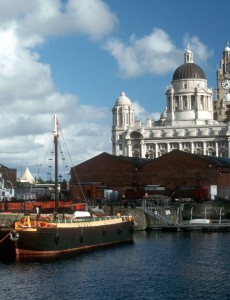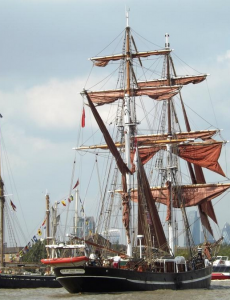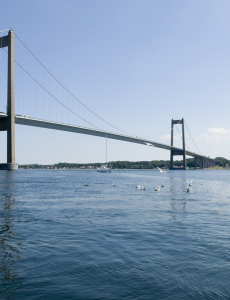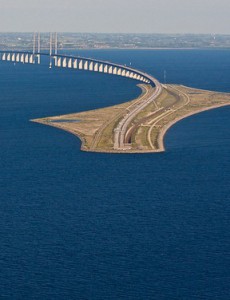
North Seas
About the North Seas
The North Sea is found between the UK, Norway, Sweden, Denmark and France. It also stretches between Germany, the Netherlands and Belgium. It is a marginal sea of the Atlantic Ocean and is joined to it by the English Channel in the south and the Norwegian Sea in the north. The North Sea has long been the site of important European shipping lines and is also serves as a site of major fishery. It is a popular tourist destination for those wishing to visit bordering countries and is also a valuable source of energy, including fossil fuels and wind power. It has a rich and interesting history, ranging from the Vikings all the way up to being a strategically important Sea in the World Wars.
The North Sea is also the site of some diverse geographical features. In the north, you can find sheer cliffs and deep fjords which mark the Scottish and Norwegian coastlines. In the south, you can find wide mudflats and sandy beaches. The Shetland Islands are also located in the north. It is connected to the Baltic Sea and is bounded by the Orkney Islands to the west. On a North Atlantic cruise, you can visit major, bustling cities like Copenhagen and Helsinki, or absorb the breath-taking beauty of the Norwegian fjords.
If you’re feeling adventurous you can even go and explore the Polar Regions. You can even charter a yacht if you wish so that you can experience the ultimate sailing expedition in Antarctica. If the fancy takes you, you may even choose to sail the Northwest Passage, Alaska and watch whales frolicking, see eagles soaring and bears fishing, all up close and personal. Without further ado, let’s find out more about the North Sea and Antarctica so you can start planning your dream cruise today.

Top destinations in North Seas

Recommendations
- The North Sea is over 600 miles long and 360 miles wide.
- The deepest point of the North Sea reaches a depth of 700 metres.
- It is the coldest sea in the world with an average temperature of 6 degrees Celsius in winter and 17 degrees Celsius in the summer.
- The Orkney, Shetland and Frisian Islands are located at the edges of the North Sea.
- The name of the North Sea is probably derived from Dutch. It used to be known as the German Sea.
- During the last Ice age, the North Sea was covered by glaciers, when these melted the sea was formed.
- The costs of the North Sea are home to nature reserves including the Ythan Estuary and the Farne Islands in the UK, and the Wadden Sea National Parks in Denmark, the Netherlands and Germany. These provide a breeding ground for numerous bird species.
- The driest place on earth is found in Antarctica, a place called the Dry Valleys.
- It is also one of the windiest places on earth with winds speeds reaching 200mph.
- The Antarctic Ice sheet is the largest mass of ice in the world and makes up around 70 per cent of the planet’s freshwater.
- The Ross Ice Shelf is the largest ever found.
- Lake Vostok is an intriguing geographical feature, a lake buried 4km under the ice.
- The Antarctic is also home to the most active volcano in the world, Mount Erebus.
Now let’s find out more about some great Northern Atlantic cruises and polar expeditions.
All destination regions
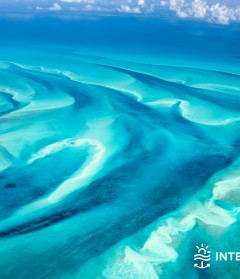
Caribbean Sea
The Caribbean Sea, in the Western Hemisphere of the Atlantic Ocean, counts over 7000 islands, of which fever that 10% are inhabited. Among the most renowned islands are: Antigua and Barbuda, the Barbados islands, the Dominican Republic, Guadeloupe and Martinique, Saint Martin, Grenada, Haiti, Honduras, Jamaica, Saint Vincent and the Grenadines, Trinidad and Tobago, the Briti...
See all destinations
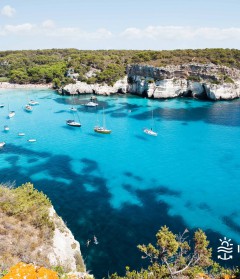
Mediterranean Sea
The Mediterranean Sea stretches from the Atlantic Ocean in the west to Asia in the east. It divides Europe from Africa. It has been referred to as the incubator of Western Civilisation. It spans approximately 2,500 miles from west to east, from the Strait of Gibraltar, located between Morocco and Spain, to the southwestern coastland of Turkey and on to the Gul...
See all destinations
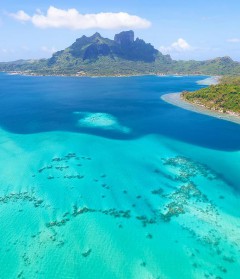
Pacific Ocean
The Pacific Ocean is both the deepest and largest ocean in the world. It runs from the Arctic Ocean to the Sothern Ocean in the south. It is connected to Australia and Asia in the west and the Americas in the East. It makes up about 46 per cent of the Earth’s water surface. It is subdivided by the equator in the Northern Pacific Ocean and Southern P...
See all destinations
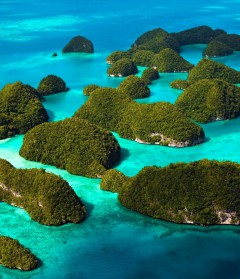
Indian Ocean
This ocean makes up about one-fifth of the water on the planet and is the largest after the Pacific and Atlantic Oceans. It stretches to Asia in the north and to Africa in the west. To the east, it is bounded by Australia and reaches to the Southern Ocean. It encompasses the Persian Gulf and the Red Sea. It is surrounded by land on all but one side. It doesn&r...
See all destinations
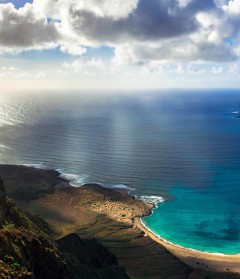
Atlantic Ocean
The Atlantic Ocean is the second largest of Earth’s oceans and covers about 20 per cent of its surface. It divides the “New World” from the “Old World”. It fills an S- shaped basin spanning between Europe and Africa in the east and the Americas in the west. In the north it’s joined to the Arctic Ocean and is connected with t...
See all destinations
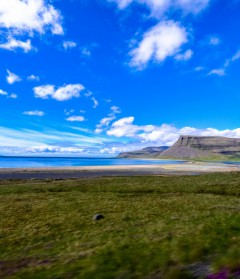
North Seas
The North Sea is found between the UK, Norway, Sweden, Denmark and France. It also stretches between Germany, the Netherlands and Belgium. It is a marginal sea of the Atlantic Ocean and is joined to it by the English Channel in the south and the Norwegian Sea in the north. The North Sea has long been the site of important European shipping lines and is al...
See all destinations




